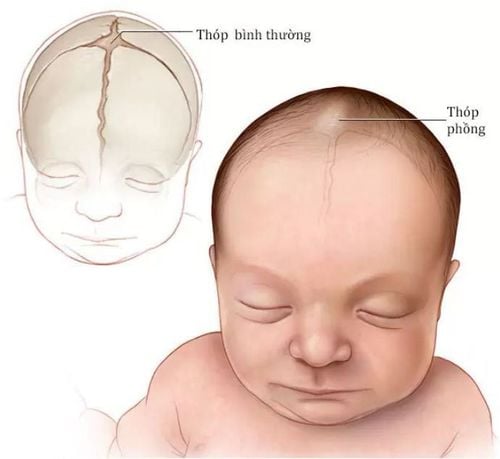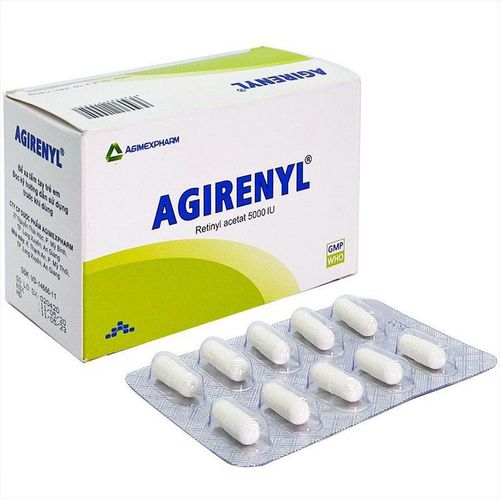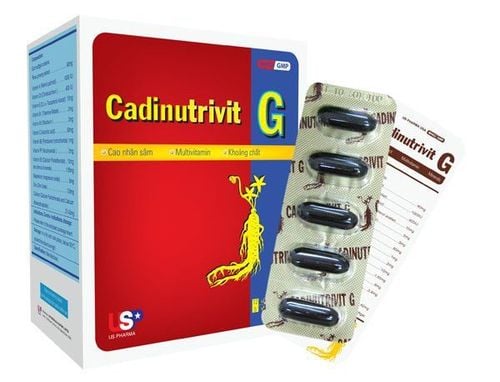This is an automatically translated article.
The article was professionally consulted by Specialist Doctor II Ho Viet Le Diem - General Internal Medicine - Department of Examination & Internal Medicine - Vinmec Central Park International General Hospital.The current Vietnamese diet does not meet 100% of the needs of vitamins and minerals necessary for the body, including vitamin A. Therefore, children need to be supplemented with vitamin A to develop well. avoid the risk of vision diseases, immunodeficiency,...
1. The role of vitamin A in children's health
Vitamin A is involved in many bodily functions. Specifically:Growth role: Vitamin A plays an important role in the growth process, helping children develop normally. Without vitamin A, children will be stunted, stunted, and malnourished. Visual function: Vitamin A participates in the visual function of the eyes, helping the eyes to have the ability to see clearly in low light conditions. When vitamin A deficiency, the ability of the eyes to see will be reduced, especially in low light. This phenomenon usually appears at dusk, folk called night blindness. Night blindness is an early manifestation of vitamin A deficiency. Manifestations of vitamin A deficiency causing night blindness in children at dusk are usually shy, sitting in one place, do not dare to go or if walking, they are easy to fall. , difficult to walk, easy to collide with objects on the ground,... Protects the epithelium: Vitamin A protects the integrity of the corneal epithelium, subcutaneous epithelium, tracheal mucosa, and mucous membranes. small intestine, salivary glands and testes,... When vitamin A is deficient, the body reduces the production of mucus, causing the skin to dry, appear keratinized,... This expression is often seen in the eyes: rash Dryness of the conjunctiva, then damage to the cornea, leads to blindness. If vitamin A is deficient, the intestinal mucosa is damaged leading to digestive disorders or the bronchial mucosa is vulnerable to respiratory diseases, ...

Vitamin A có nhiều lợi ích đối với sức khỏe của trẻ
2. Causes of vitamin A deficiency
Vitamin A is present in food, when entering the body, it will be absorbed through the intestines and stored mainly in the liver. The causes of vitamin A deficiency include:Dietary deficiency of vitamin A: The human body cannot synthesize vitamin A on its own, but it must be provided by food. Therefore, the main cause of vitamin A deficiency in children is an unbalanced diet, lack of vitamin A and carotene (provitamin A). A low-fat meal also reduces the absorption of vitamin A in food (because vitamin A is fat-soluble). In nursing infants, the main source of vitamin A is breast milk. If during breastfeeding, the mother's diet lacks vitamin A, it will directly affect the baby.

Chế độ dinh dưỡng không cân bằng có thể khiến trẻ bị thiếu vitamin A
3. Subjects prone to vitamin A deficiency
Children under 3 years of age are susceptible to vitamin A deficiency because they are growing rapidly and need more vitamin A. At this age, because of changes in nutrition (the period of complementary feeding, weaning) and susceptibility to infectious diseases. Therefore, children are at high risk of vitamin A deficiency.
Trẻ bị thiếu vitamin A dễ bị suy giảm thị lực
4. How to supplement vitamin A for children
4.1. Give your child vitamin A
At-risk groups (children and mothers) should take high-dose vitamin supplements to address dry eye conditions that cause blindness in children.How to give vitamin A to children:
For children 6 - 12 months old: Hold the capsule with your index finger and thumb, use scissors to cut the tip of the capsule, squeeze the number of drops in 1 capsule. Give your child 3-4 drops of Vitamin A (half a tablet). Finally, give the child a spoonful of dessert water. For children 12 - 23 months old: Hold the capsule with your index finger and thumb, cut the tip of the capsule with scissors, squeeze all the vitamin A juice into the child's mouth. Finally, give the child a spoonful of dessert water. For children over 24 months of age: Have your child chew or swallow vitamin A capsules and then give them water to drink.

Cho trẻ uống vitamin A đúng cách
Each capsule contains about 6-8 drops of Vitamin A solution. If cut close to the tip of the nipple, you can squeeze out 6-8 drops, if cut in the middle of the nipple, about 6 drops. Monitor children's health after taking vitamin A for 2 days to handle cases of side effects.
4.2 Change of lifestyle and nutrition
Vitamin A can be added to some common foods such as sugar, milk, cooking oil, etc. This is a transitional solution, bringing high efficiency in supplementing necessary vitamin A for children.
Bổ sung thực phẩm giàu vitamin A vào chế độ ăn của bé
Gathering a team of leading pediatricians: Including: leading experts with high professional qualifications (professor, associate professor, doctorate, master), rich experience, worked in big hospitals such as Bach Mai, 108,... The doctors All doctors are well-trained, professional, conscientious, knowledgeable about young psychology. In addition to domestic pediatric specialists, the Department of Pediatrics also has the participation of foreign experts (Japan, Singapore, Australia, USA) who are always pioneers in applying the latest and most effective treatment regimens. . Comprehensive services: In the field of Pediatrics, Vinmec provides a series of continuous medical examination and treatment services from Newborn to Pediatric and Vaccine,... according to international standards to help parents take care of their baby's health from birth to childhood. from birth to adulthood Specialized techniques: Vinmec has successfully deployed many specialized techniques to make the treatment of difficult diseases in Pediatrics more effective: neurosurgery - skull surgery, stem cell transplantation. blood in cancer treatment. Professional care: In addition to understanding children's psychology, Vinmec also pays special attention to the children's play space, helping them to have fun and get used to the hospital's environment, cooperate in treatment, improve the efficiency of medical treatment.
Please dial HOTLINE for more information or register for an appointment HERE. Download MyVinmec app to make appointments faster and to manage your bookings easily.













